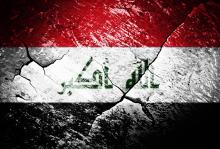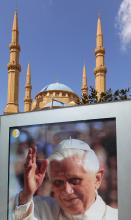turmoil

THE U.S. AND other nations are increasingly aware that the so-called Islamic State is a serious, long-term threat to Middle East stability. And it has become clear that there are few good options for addressing the situation without the willingness and ability of the Iraqi government to promote inclusion and weed out corruption.
In the midst of all this, the plight of Iraqi Christians has taken center stage. Since the U.S.-led invasion of Iraq in 2003, more than two-thirds of the Iraqi Christian community has left the country, with many fleeing as a result of violence and religious persecution.
This exodus has only increased as the reach of the Islamic State, or ISIS, has expanded and its reputation for brutality become widely known. The militant group has publicly beheaded hostages for propaganda purposes, committed mass killings, and given Christians the ultimatum: Convert to Islam, pay a fine, or face death if they remain faithful to their beliefs.
Followers of Christ have existed in the area now called Iraq since the earliest days of Christianity. Now there is a serious debate as to whether the faith has a viable future in this ancient of lands.

BEIRUT — As violent protests against an anti-Islam film spread to much of the Muslim world on Friday, Pope Benedict XVI arrived in Lebanon to a warm welcome from Christian and Muslim leaders.
The pontiff's appeal for peace and reconciliation in the region, however, stood in jarring contrast with violent clashes in the northern Lebanese city of Tripoli, which left one dead and 25 injured.
Landing at Beirut's airport in the early afternoon, Benedict praised Lebanon as an example of "coexistence and respectful dialogue between Christians and their brethren of other religions."
Without referring expressly to the unrest, the pope warned that the country's "equilibrium" is "extremely delicate."